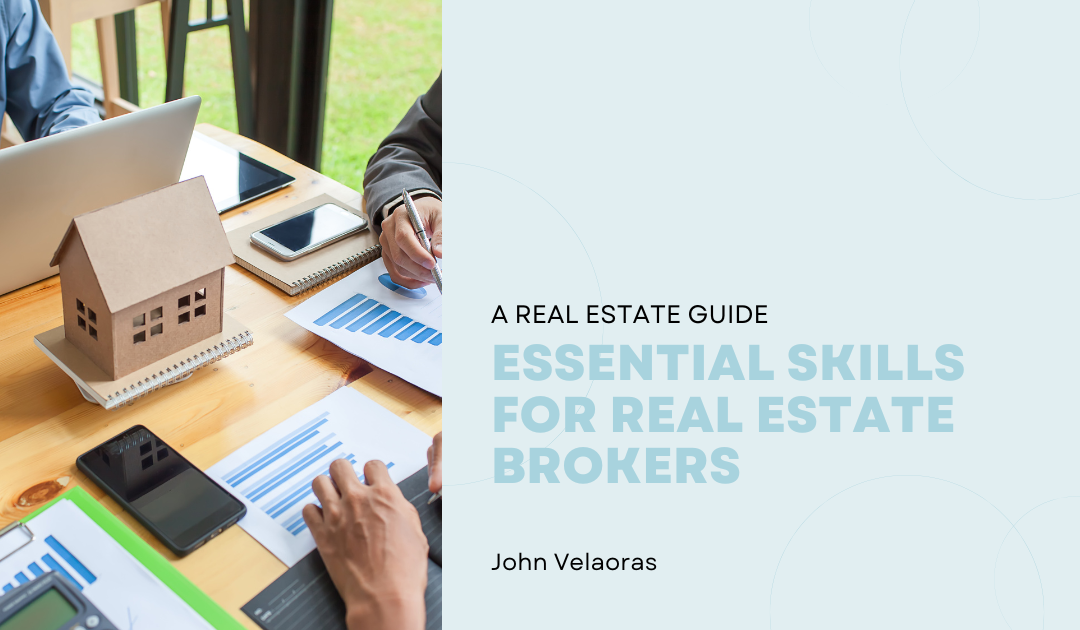Success as a real estate broker hinges on a combination of technical expertise, interpersonal skills, and a deep understanding of the ever-changing market. Brokers act as intermediaries in property transactions, guiding clients through complex processes and ensuring that deals are mutually beneficial. To excel in this role, brokers must master a diverse set of skills that address both the practical and emotional aspects of real estate.
One of the most critical skills for real estate brokers is effective communication. Brokers interact with clients, agents, attorneys, and other stakeholders, requiring the ability to convey information clearly and persuasively. Active listening is equally important, as it helps brokers understand their clients’ needs and preferences. Strong communication builds trust, fosters relationships, and ensures that all parties are aligned throughout the transaction process.
Market knowledge is another cornerstone of a broker’s success. Understanding local trends, property values, and neighborhood dynamics enables brokers to provide informed advice to clients. This expertise is particularly valuable during negotiations, as brokers can leverage their knowledge to advocate for favorable terms. Staying updated on zoning laws, tax regulations, and economic indicators also enhances a broker’s ability to navigate complex situations and anticipate market shifts.
Negotiation skills are essential for brokers who aim to achieve the best outcomes for their clients. Successful negotiators balance assertiveness with empathy, seeking solutions that satisfy all parties involved. Whether it’s securing a competitive price or addressing contingencies, brokers must approach negotiations with creativity and a focus on win-win outcomes. Preparation and a thorough understanding of the client’s priorities are key to mastering this skill.
Time management and organizational abilities are crucial for brokers who juggle multiple clients and transactions simultaneously. Efficient scheduling, prompt follow-ups, and meticulous record-keeping ensure that nothing falls through the cracks. Utilizing technology, such as customer relationship management (CRM) software, can streamline workflows and enhance productivity. A well-organized broker can provide a seamless experience for clients, even during high-pressure situations.
Emotional intelligence plays a significant role in building rapport and managing client relationships. Real estate transactions often involve significant financial and emotional stakes, making it essential for brokers to empathize with their clients’ concerns. Recognizing and addressing emotions—whether it’s excitement, anxiety, or frustration—helps brokers create a supportive and positive experience. This skill also aids in conflict resolution, as brokers can mediate disputes and find common ground.
Marketing and branding are integral to a broker’s ability to attract clients and establish a reputation in the industry. A strong online presence, including a professional website and active social media profiles, showcases expertise and builds credibility. Brokers should also leverage traditional marketing methods, such as networking events and community involvement, to expand their reach. Highlighting unique selling points, such as specialized knowledge or exceptional service, sets a broker apart from the competition.
Adaptability is essential in an industry characterized by constant change. Market conditions, consumer preferences, and technology evolve rapidly, requiring brokers to stay flexible and open to learning. Embracing new tools, such as virtual tours or data analytics, can enhance a broker’s capabilities and improve client satisfaction. Additionally, brokers who proactively seek professional development opportunities demonstrate a commitment to excellence and long-term growth.
Ethical conduct and integrity are non-negotiable for real estate brokers. Clients entrust brokers with significant decisions and financial assets, making honesty and transparency paramount. Adhering to ethical standards not only safeguards the client’s interests but also strengthens the broker’s reputation and fosters trust within the community.
The role of a real estate broker demands a diverse skill set that combines technical proficiency with interpersonal finesse. By honing these essential skills and maintaining a client-first mindset, brokers can navigate the complexities of the real estate industry and achieve sustained success.

